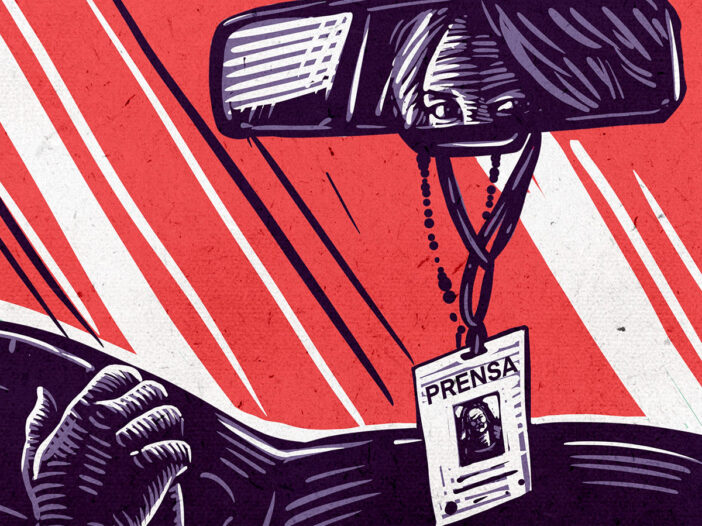This is our recommendations
This guide features a series of best practices aiming to improve the relationship between foreign correspondents and local fixers and eliminate the inherent inequality that exists between the two.
DOWNLOAD THE GUIDE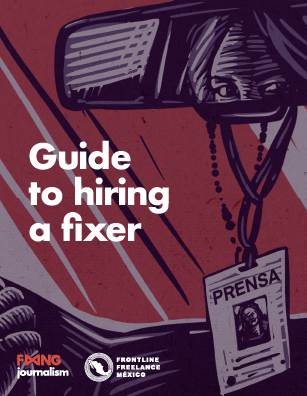
Table of Contents
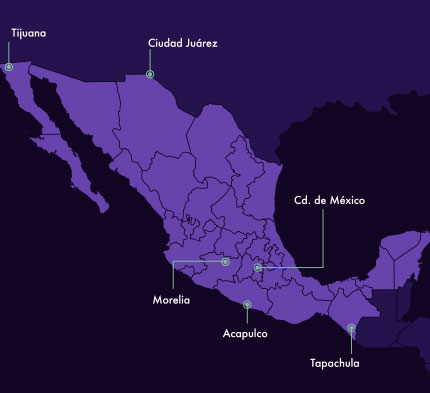 What kind of story are you interested in reporting on in Mexico? How developed is your investigation? Is it character-based, issue-based or regionally based? Is it inspired by an article or video that was already published? Why will you be hiring a fixer? Will you want the fixer to work with you for the entire duration of your reporting or just one part? Are you going to do more than one story? If so, do you want to work with different fixers depending on the location and the issue, or do you prefer to work with one?
What kind of story are you interested in reporting on in Mexico? How developed is your investigation? Is it character-based, issue-based or regionally based? Is it inspired by an article or video that was already published? Why will you be hiring a fixer? Will you want the fixer to work with you for the entire duration of your reporting or just one part? Are you going to do more than one story? If so, do you want to work with different fixers depending on the location and the issue, or do you prefer to work with one?
Often, reporters come to Mexico and think that in one week they can report on detained migrants on the Guatemala border, mothers searching for their missing daughters in Juarez and avocado growers in Michoacan. As you can see in the map below, Mexico is a vast country, and even if you are flying you can spend an entire day traveling from one end to the other. Please take into account these geographic considerations when planning your coverage.
We also recommend that you always leave more time than you think you will need to report your story. A large portion of the most interesting stories in Mexico occur in rural areas where the rhythm of life is much slower and distances are much longer. At times you may have to drive many kilometers on dirt roads or even hike to reach the people you want to interview. Depending on the area you are working in, there are often road blockades, sometimes from protests, other times from accidents and occasionally from warring criminal groups.
We also encourage you to go beyond the traditional stereotypes that occur in reporting in Mexico, simplifying the violence our country experiences to a Wild Western with warring narcos, hooded hitmen and good politicians arresting kingpins to eliminate drug trafficking. The members and partners of Frontline Freelance México possess a vast knowledge of current events, social phenomena and politics in Mexico and can help you go beyond the stereotypical stories about violence in our region.
We also encourage you to go beyond the traditional stereotypes that occur in reporting in Mexico, simplifying the violence our country experiences to a Wild Western with warring narcos, hooded hitmen and good politicians arresting kingpins to eliminate drug trafficking. The members and partners of Frontline Freelance México possess a vast knowledge of current events, social phenomena and politics in Mexico and can help you go beyond the stereotypical stories about violence in our region.
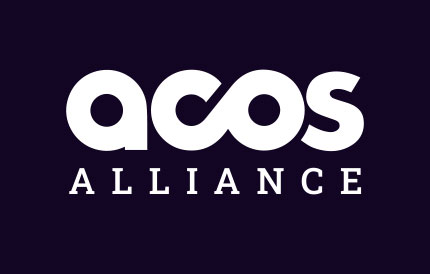
While Mexico is one the most dangerous countries in the world to be a journalist, there is no full-blown war with trenches or green zones. In some of the riskiest places you will still see children playing in the street and smiling vendors selling tacos on the street corner. The person you hire as a fixer is essentially your lifeline, as they will use their local knowledge and contacts to make sure the team stays safe.
It is essential that there exists a fair exchange between you as the client and the fixer in terms of security and that you trust their instinct and protocols. If they recommend that you leave the area, it is important to evacuate, as your lives may be at risk.
When reporting in areas where there is a heavy presence of organized crime groups, the vehicle you drive, the hotel you stay in, the clothes you wear, your security personnel and the equipment you wear all play a key role in your safety.
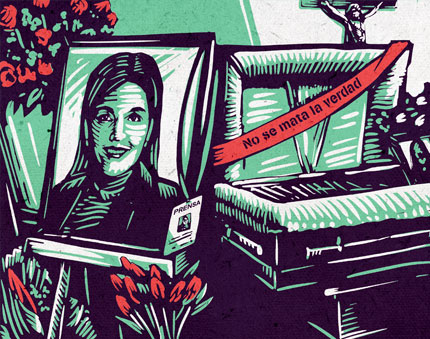 Margarito Martinez was a veteran crime beat photographer in the northern border city of Tijuana who published with numerous local outlets. His vast knowledge of the local criminal world led him to work as a fixer for their investigations in Tijuana. However, this same knowledge led him to be a target of local criminal groups who eventually took his life in January 2022. We are not insinuating that he was murdered for his work as a fixer, but it is believed that his reporting about criminal groups led to him being a target.
Margarito Martinez was a veteran crime beat photographer in the northern border city of Tijuana who published with numerous local outlets. His vast knowledge of the local criminal world led him to work as a fixer for their investigations in Tijuana. However, this same knowledge led him to be a target of local criminal groups who eventually took his life in January 2022. We are not insinuating that he was murdered for his work as a fixer, but it is believed that his reporting about criminal groups led to him being a target.
The risks that you and your team will face depend on the story you are reporting on and the region in which it unfolds, but it is also important to note that while you may be doing a story on culture, nature or sports, there may still be a level of danger. You may be reporting on the reopening of national parks, but someone doesn’t like that you are filming their family swimming in the river, and they threaten your life and equipment. This is why we recommend having a check-in specifically about security issues before embarking on your trip.
Frontline Freelance México is a member of the ACOS Coalition which is composed of 129 news organizations, freelance journalist associations and press freedom groups working together to to embed a culture of safety in news organizations and freelance journalists working practices and protect their vital role in global society.
“International news organizations have a moral responsibility to support the journalists they commission and to show the same concern for the welfare and safety of freelancers, local journalists and media workers as they do for their staff. In making assignments in a conflict zone or dangerous environment international news organizations should be prepared to take comparable responsibility for the well-being of freelancers and local journalists in case of kidnapping or injury as they do for staffers, and for their families in case of death.”
“International news organizations should also factor in the additional costs of working in a hostile environment, such as personal protective equipment (PPE), insurance, secure communications, hazard pay, and contingency cash for entire teams, including local producers, translators and drivers. Ensuring fair and prompt payment and providing agreed upon expenses in advance is essential.” – ACOS Alliance
We recommend the Safety Management resources available on The ACOS alliance website (https://www.acosalliance.org/) that will allow you both to assess your media outlet’s current safety practices and protocols as well as a Freelance Safety Checklist that you can go over with your fixer or local producer before embarking on your trip…
Fortunately, we do not know of any fixer or local producer who was murdered while working with an international team, but we do know of cases where teams have been kidnapped, shot at, robbed, threatened and forced to immediately leave areas they were reporting in. As recommended in the ACOS documents, we highly recommend developing a contingency plan beforehand, including a communications strategy and protocols of what to do in the emergency situations named here.
We also recommend that you have a person at your media outlet or a colleague from home monitoring you and the fixer or producer you are working with while on assignment. The team that will be reporting in Mexico should have some kind of Hostile Environment training if they will be stories related to crime andviolence. Also, if your media outlet offers HEFAT (Hostile Environment First Aid Training) and has open spots
for freelancers or scholarships, we encourage you to offer these opportunities to the fixers you work with in Mexico. Currently there are very few opportunities for local journalists to participate in a HEFAT in Mexico, although we are working to change that.
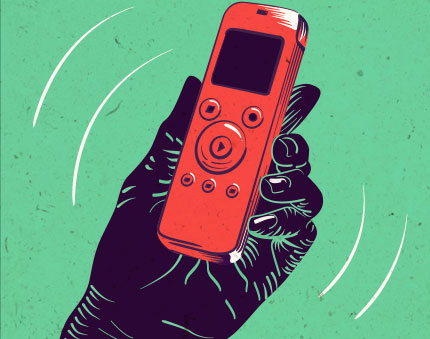 We recognize that connecting journalists to sources and providing contacts are the most essential service that a fixer can provide. As the majority of fixers in Mexico also work as journalists, they spend years cultivating these relationships. When their sources agree to do interviews with you as a journalist, they are generally agreeing to speak with you based on the trust that they have in the fixer and the prior work that they have published.
We recognize that connecting journalists to sources and providing contacts are the most essential service that a fixer can provide. As the majority of fixers in Mexico also work as journalists, they spend years cultivating these relationships. When their sources agree to do interviews with you as a journalist, they are generally agreeing to speak with you based on the trust that they have in the fixer and the prior work that they have published.
Many of the victims of violence in Mexico have a deep mistrust of the media and at times this mistrust translates to a mistrust of journalists themselves. Additionally, many are tired of repeatedly telling their story or how they dig in the hillsides to search for their missing son or how many times they have gone before the Mexican judicial system to demand that their daughter’s assassin be brought to justice.
When the fixer or producer schedules an interview with one of these victims of violence, it is very important to carry out the interview and not cancel unless an absolute emergency comes up.
“A production contacted me to work on a documentary about femicides, but the angle they wanted to cover was tabloid-like. The producer wanted me to get them access to film an autopsy of a murdered woman and then contact her family members. This would have been a violation of the victims’ human rights. I instead offered an interview with a woman who was a victim of gender violence, and I scheduled it when they agreed to it, but then they canceled deciding it wasn’t sensational enough.”- Melissa, independent journalist.
In this case, Melissa not only damaged a relationship she had built, but also didn’t receive any payment for the work she had done. While it may seem that we are stating the obvious, we also recommend that you carry out the interview in the most respectful manner possible. It is essential that you don’t revictimize people who have already suffered so much trauma and violence while interviewing and documenting them.
In Mexico, high value is placed on politeness, proper greetings and patience. While it may seem that the fixer is wasting time making small talk before an interview, it is most likely that they are helping the source feel comfortable and prepared for the interview.
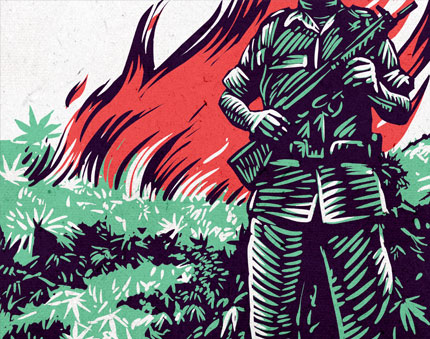 Generally speaking, the stories that get the most clicks and views from Mexico have direct access to the criminal world. We understand that you may be interested in doing a similar story that will have a similar impact. Many journalists and fixers in Mexico have been able to cultivate relationships with criminal elements, but these stories are still high-risk as those within the criminal world call the shots.
Generally speaking, the stories that get the most clicks and views from Mexico have direct access to the criminal world. We understand that you may be interested in doing a similar story that will have a similar impact. Many journalists and fixers in Mexico have been able to cultivate relationships with criminal elements, but these stories are still high-risk as those within the criminal world call the shots.
A significant percentage of stories, TV specials and documentaries that show fentanyl labs, drug trafficking operations or hitmen talking about how many people they have killed have paid for access to the criminal organization. Therefore, if you are insisting that your fixer obtain this kind of access, please understand that this comes with a high price tag, both in terms of money and also questionable journalism ethics.
Alicia Fernández is a multimedia journalist in Ciudad Juaréz who has worked as a fixer facilitating access to the criminal world but without paying for it. She arranged an interview with a drug dealer but the reporter wanted more.
“He requested that I schedule another talk with the dealer. I told him that I couldnot do that. He took a 100 dollar bill and told him he would pay me more. He waved it in front of me as if I was a starving dog. I grabbed the bill and dropped it in his drink. … This lack of solidarity and ethics where he tried to convince me as if he was showing a treat to a dog. It’s degrading and sad.”
Jesús Bustamente from Sinaloa has had similar experiences. “They have a very weird vision, they think everything is very simple. All of sudden they tell you, ‘we have a few free hours, do you think we can go visit a fentanyl lab?’ They think that I can just get on the phone and call someone and they will open the door to their fentanyl lab.”
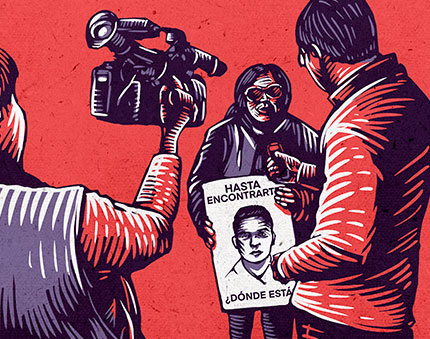 Victims of violence, people with a vulnerable migration status, members of organized crime and even regular business owners often request anonymity in the stories that will be published with their testimonies. Sometimes they may just want their last name left out, other times that their face doesn’t appear and at times that their voice is distorted. We recommend that you discuss this issue with your fixer or local producer, as we understand that some media outlets do not allow for anonymity or have certain rules around it.
Victims of violence, people with a vulnerable migration status, members of organized crime and even regular business owners often request anonymity in the stories that will be published with their testimonies. Sometimes they may just want their last name left out, other times that their face doesn’t appear and at times that their voice is distorted. We recommend that you discuss this issue with your fixer or local producer, as we understand that some media outlets do not allow for anonymity or have certain rules around it.
However, we would like you to understand that the issue of anonymity can be an issue of life or death both for the source sand the journalists. Numerous journalists that we interviewed for this project expressed their concern that the outlets promised that they would blur faces or not publish names and were not sure they would keep their word.
One journalist from Tamaulipas, one of the most dangerous states in all of Mexico, on the northern border, told us that her worst experience as a fixer occurred when someone they hadinterviewedwasmurderedafewdayslater. Shedidn’tattributehisdeathtothe lack of anonymity, nor can she prove that it was directly related to the report that was published, but regardless, this anecdote helps us understand the gravity of the situation.
Lenin Mosso is a documentary photographer who works as a fixer in the Southern Mexican state of Guerrero and specializes in issues in indigenous communities and poppy production. “I contacted a hitman, who was the cousin of the cousin of a friend. When I met with him at a store to propose the interview, I realized that I was putting my life at risk to achieve the story that they wanted. … I told them if anything happens, he knows where I live.” This of course includes the issue of anonymity. The hitman told him, “If my boss finds out, you don’t have a way
out of this.” Lenin later repented having arranged this situation as a fixer. “It’s when I realized that in exchange for a few pesos I was putting myself in a really heavy situation.”
Once the story is published, you may be very far away from the place it occurred, but it is most likely that the fixer and their entire family are living or working in that same region and can suffer from whatever blowback there is from the story.
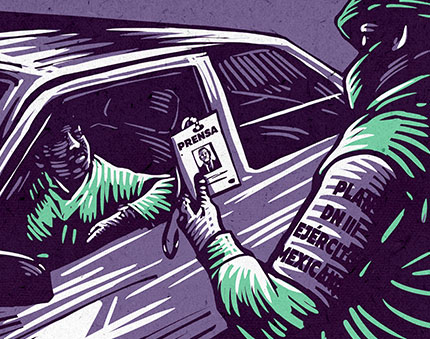 Whether you are hiring a fixer or a local producer, we recommend that you allot budget and resources for pre-production. If you want to be able to interview a family of poppy growers, the fixer will most likely have to travel through difficult terrain many hours to reach the family, confirm that they have a current harvest of flowers, and will agree to receive and speak with a journalist crew. The fixer should be compensated both for their time and expenses regardless if you end up doing the story or not.
Whether you are hiring a fixer or a local producer, we recommend that you allot budget and resources for pre-production. If you want to be able to interview a family of poppy growers, the fixer will most likely have to travel through difficult terrain many hours to reach the family, confirm that they have a current harvest of flowers, and will agree to receive and speak with a journalist crew. The fixer should be compensated both for their time and expenses regardless if you end up doing the story or not.
Also, please understand that the more specific your subject requests are, the more time the fixer will need to identify them. One journalist shared an anecdote with us where he spent weeks identifying migrants that were in economic crisis due to climate change and were planning on migrating in the following days and would let a team document it. Additionally, if you will need subjects to speak English, this will add a lot of time to pre-production, as it is fairly difficult to find people in Mexico that speak English fluently enough for an interview. A lot of bureaucracy is involved with acquiring interviews with government officials, so please allot more pre-production time for that.
 We do not have a standard rate that we recommend outlets to pay fixers, as it depends on many factors, but we do recommend that you never pay below $150 USD for the day and that you pay more if you are going to need them to drive, translate or engage in other extra activities.
We do not have a standard rate that we recommend outlets to pay fixers, as it depends on many factors, but we do recommend that you never pay below $150 USD for the day and that you pay more if you are going to need them to drive, translate or engage in other extra activities.
As we have detailed in this guide, journalists and fixers in Mexico face many challenges that put their lives and that of their families at risk. We believe that the riskier the assignment the more money the fixer or local producer should receive. This includes stories about crime and violence but also those that have biomedical implications, such as covering the global pandemic and directly documenting people encourage you to reference our list of activities for fixer and local producer or collaborator, and pay accordingly as the latter should receive a higher day rate.
How long will your work days be? We recommend that if they are longer than nine hours that you pay overtime. We also recommend that you pay for travel days and agree on what payment will be if flights are canceled or other glitches in the production.
We also highly encourage you to pay all the costs of production instead of making the fixer or local producer pay up front and later get reimbursed. To put costs into perspective, many local journalists make less than $350 USD per month, which means fronting the money for a over $100 USD per night hotel is out of the question. If this is your company’s policy we recommend that you advise the fixer beforehand, to see if it is within their possibilities.
We also recommend that you pay in cash at the end of the production to avoid delays and transfer fees. If you will require an invoice, tax documents and a possible onboarding process, please let the fixer know beforehand so they can set that up and receive a prompt payment.
 One of the main concerns of fixers is the lack of credit that they get for their work. It is very rare to see a media outlet name the fixer even though they were completely essential for them to report their entire story. This practice of leaving the fixers out of the credits, further invisibilizes their work.
One of the main concerns of fixers is the lack of credit that they get for their work. It is very rare to see a media outlet name the fixer even though they were completely essential for them to report their entire story. This practice of leaving the fixers out of the credits, further invisibilizes their work.
Francisco Robles is a photo journalist and producer in Acapulco, Guerrero. “I think it is important that they take into account the work that one does as a fixer. Without us they would not be able to do their work and win prizes in their home countries or in international contests… That is why I think it’s important for them to not just consider us fixers, but instead local producers. The term fixer makes us seem like we are just assistants or negotiators when really we are local producers. Sometimes it makes you sad to see that these people won awards for a story or documentary and your name is not in the credits.” states Robles.
Awards can play a significant role in a journalist’s life, helping advance their career, receive better pay in their work, be recommended for other jobs, purchase better equipment with the prize money, among other benefits. We believe it is of utmost importance that you include the fixer or local producer’s name in the credits of your published work. We also encourage you to really evaluate the role they played and whether they should receive credit for being a local or field producer or contributing reporter. If you think you are going to submit the work for awards, we also recommend that you discuss how you will divide the award money amongst the members of your team.
Additionally, once you return to your home country, the fixer will continue to work as a journalist reporting on interesting stories from Mexico. If you are happy with their work as a fixer or local producer, we encourage you to invite them to continue collaborating with you or your media outlet in the future.
